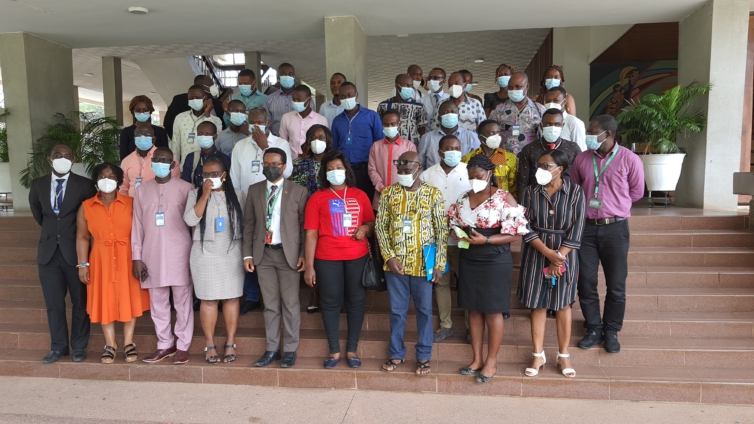The Kumasi Centre for Collaborative Research (KCCR) is developing an operational research agenda to help in addressing Skin Neglected Tropical Diseases (NTDs) in the country.
The plan will include control and eradication of the NTDs.
Neglected Tropical Diseases are a group of 20 World Health Organization (WHO) listed diseases that are common in tropical and subtropical climates.
Over 2 billion people worldwide are infected with these diseases. This can result in lifelong deformities leading to stigmatization if not reported early.
Ghana, in recent times, has been battling with scabies, elephantiasis, buruli ulcer, yaws, leprosy, deep mycoses and cutaneous leishmaniasis.
These diseases have been found to be usually neglected by health systems in countries and poorly funded for research and control.
However, Ghana has made some gains in the eradication of NTDs.
The country has been certified as Guinea Worm free and the country recently eliminated Trachoma as a public health disease.
Over the years, the WHO has proposed an integrated approach to NTD management as funding keeps dwindling.
In January 2021, the WHO launched the road map for NTDs from 2021 to 2030. This is linked to the SDGs and the Universal Health Coverage (UHC).
The aim is to significantly reduce the reporting of late-stage cases and prevent disability and death.
The WHO identifies these targets as possible with a well-structured diagnostics system and continuous active case search.
Scientists have therefore been emphasizing the role of research in the strategies towards control, elimination and eradication of NTDs.
Director of KCCR, Prof. Richard Odame Phillips, believes affected countries need to institute meaningful research addressing priority research areas to make the goal achievable.
“We have limited resources. We need to think of how to have a clear research agenda with a prioritized list aligned with your resources to know how best to go so that everyone in Ghana will know these are the real priority areas,” he explained.
Researchers have therefore had a 2-day meeting in Kumasi to come out with key research areas.
The programme, sponsored by the WHO, will propose innovative strategies to enhance and sustain case detection in selected districts.
This will help in the understanding of the extent of the under-reporting of cases.
The KCCR and Noguchi Memorial Institute for Medical Research will be working with selected stakeholders including Regional and National Officers to propose a skin NTD Research Agenda.
The agenda is expected to identify and update ongoing and completed research on skin NTDs and research gaps and challenges on Skin NTDS.
Perspectives of participants on the existing capacity for delivering NTD services and potential research proposals on Skin NTDs for Ghana are some of the expectations.
The Ghana Health Service is a key stakeholder in this agenda. Other collaborators are from the Kwame Nkrumah University of Science and Technology and the University of Ghana.
Leprosy programme Manager at the Ghana Health Service, Dr Benedict Okoe Quao is glad the collaboration will enable Ghana to optimize some of the interventions based on findings.
“Once Ghana Health Service is involved, we’re more likely to implement it on the field,” he said.
Latest Stories
-
Paris 2024: Opening ceremony showcases grandiose celebration of French culture and diversity
3 hours -
Spectacular photos from the Paris 2024 opening ceremony
4 hours -
How decline of Indian vultures led to 500,000 human deaths
4 hours -
Paris 2024: Ghana rocks ‘fabulous fugu’ at olympics opening ceremony
4 hours -
Trust Hospital faces financial strain with rising debt levels – Auditor-General’s report
5 hours -
Electrochem lease: Allocate portions of land to Songor people – Resident demand
5 hours -
82 widows receive financial aid from Chayil Foundation
5 hours -
The silent struggles: Female journalists grapple with Ghana’s high cost of living
5 hours -
BoG yet to make any payment to Service Ghana Auto Group
5 hours -
‘Crushed Young’: The Multimedia Group, JL Properties surprise accident victim’s family with fully-furnished apartment
6 hours -
Asante Kotoko needs structure that would outlive any administration – Opoku Nti
7 hours -
JoyNews exposé on Customs officials demanding bribes airs on July 29
7 hours -
JoyNews Impact Maker Awardee ships first consignment of honey from Kwahu Afram Plains
8 hours -
Joint committee under fire over report on salt mining lease granted Electrochem
8 hours -
Life Lounge with Edem Knight-Tay: Don’t be beaten the third time
8 hours

